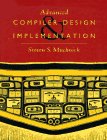
Programming Languages and Translators
Fall 2008
|
|

|
|
| COMS W4115 Programming Languages and Translators Fall 2008 |
||
Class meets Mondays and Wednesdays, 1:10 - 2:25 in 535 Mudd.
| Name | Office hours | Location | |
|---|---|---|---|
| Prof. Stephen A. Edwards | sedwards@cs.columbia.edu | T 4-5, W 3-4 | 462 CSB |
| Rajesh Venkataraman | rv2187@columbia.edu | T 1:30-3:30 | TA Room |
| Nalini Vasudevan | naliniv@cs.columbia.edu | Th 2-4 | TA Room |
The goal of PLT is to teach you both about the structure of computer programming languages and the basics of implementing compilers for such languages.
The course will focus mostly on traditional imperative and object-oriented languages, but will also cover functional and logic programming, concurrency issues, and some aspects of scripting languages. Homework and tests will cover language issues. You will design and implement a language of your own design in a semester-long group project.
While few of you will ever implement a full commercial compiler professionally, the concepts, techniques, and tools you will learn have broad application.
COMS W3157 Advanced Programming: You will be dividing into teams to build a compiler, so you need to have some idea how to keep this under control. Quick test: you need to know about Makefiles and source code control systems.
COMS W3261 Computability and Models of Computation: You will need an understanding of formal languages and grammar to build the parser and lexical analyzer. Quick test: you must know about regular expressions, context-free grammars, and NFAs.
|
Alfred V. Aho, Monica Lam, Ravi Sethi, and Jeffrey D. Ullman. |

|
|
Michael L. Scott. |

|
|
Andrew W. Appel. |

|
|
Lawrence C. Paulson |

|
|
Steven S. Muchnick |

|
The focus of 4115 is the design and implementation of a little language. You will divide into teams and design the goals, syntax, and semantics of your language, and implement a compiler for your language.
Exception: CVN students will do the project individually.
This is a critical part of the project and will be a substantial fraction of the grade.
Include the following sections:

|
The Java white paper from Sun Microsystems |
|
|
C# Introduction and Overview |

|
Dennis M. Ritchie, C Reference Manual |
|
|
Kernighan & Ritchie, The C Programming Language |
|
|
The C Language Reference Manual (DEC) |

|
The C Language Reference Manual (SGI) |
|
|
The C Language Reference Manual (Microsoft) |
|
|
Stroustrup, The C++ Programming Language |

| The Java Language Specification |

|
The C# Language Specification |
|
|
Aho, Kernighan, and Weinberger, The AWK Programming Language |
|
MATLIP:
MATLAB-like Language for Image Processing
(NV)
Pin-Chin Huang Shariar Kazi Shih-Hao Liao Pohsu Yeh |
|
TablePro:
Table Generation Language
(RV)
Rajat Dixit Anureet Dhillon Lakshmi Nadig |
|
culog:
Entity Interaction Simulation Language
(RV)
John Demme Nishant Shah Devesh Dedhia Cheng Cheng |
|
[K]AML:
Array Manipulation Language
(NV)
Kaori Fukuoka Ankush Goel Maninder Singh Mayur Lodha |
|
VOPL:
Video Processing Language
(NV)
Baolin Shao Huning Dai Jia Li Xuyang Shi |
|
FVPL:
Fast Vector Processing Language
(SE)
Ravindra Babu Ganapathi Gowri Kanugovi Pratap Prabhu |
|
CRYPS:
Cryptographic Algorithm Language
(RV)
Sarfraz Nawaz Minita Shah Saket Goel Hsiu-Yu Huang |
|
WebAppQA:
A Language for Testing Web Applications
(NV)
Adrian Frei Ankit Malhotra Roy Han |
|
SBML:
Shen Bi Ma Liang/Magic Pen Boy
(NV)
Bin Liu Yiding Cheng Hao Li Wenhan Zhang |
|
CABG:
Deterministic Finite Automaton Language
(RV)
Brody Berg Shaina Graboyes Max Czapanskiy Raphael Almeida |
|
MCSL:
Monte Carlo Simulation Language
(SE)
Yunling Wang Chong Zhai Diego Garcia Eita Shuto |
|
SHIL:
Simuated Human Interaction Language
(RV)
Moses Vaughan Chun Yai Wang Binh Vo Ian Vo |
|
PCGSL:
Playing Card Game Simulation Language
(RV)
Yuriy Kagan Andrew Shu Enrique Henestroza Peter Tsonev |
|
TMSL:
Turing Machine Simulation Language
(SE)
Isaac McGarvey Joshua Gordon Keerti Joshi Snehit Prabhu |
|
DruL:
Drumming Language
(RV)
Robert Stewart Thierry Bertin-Mahieux Benjamin Warfield Waseem Ilahi |
|
MatrEL:
Matrix Entertainment Language: A Board Game Creation Language
(NV)
Rochelle Palting |
|
ltc:
Less Than C
(SE)
Nicolas Viennot |
|
INC:
Integrated Network Control Language
(SE)
|
|
pip:
Card Game Language
(RV)
Francis Wallingford |
|
TBSL:
Turn-based Simulation Language
(RV)
Vencislav Stanev |
|
MOC-V:
A Language for Testing Web Applications
(SE)
Benjamin Panning |
|
Card-Games:
A Language for Card Games
(RV)
Jeffrey Wong |
| 40 % Project |
| 20 % Midterm |
| 30 % Final |
| 10 % Homework |
You will collaborate with your own small group on the programming project, but you may not collaborate with others on homeworks. Groups may share ideas about the programming assignments, but not code. Any two groups found submitting similar code will receive zero credit for the whole assignment, and repeat offenses will be referred to the dean. See the Columbia CS department academic policies for more details.